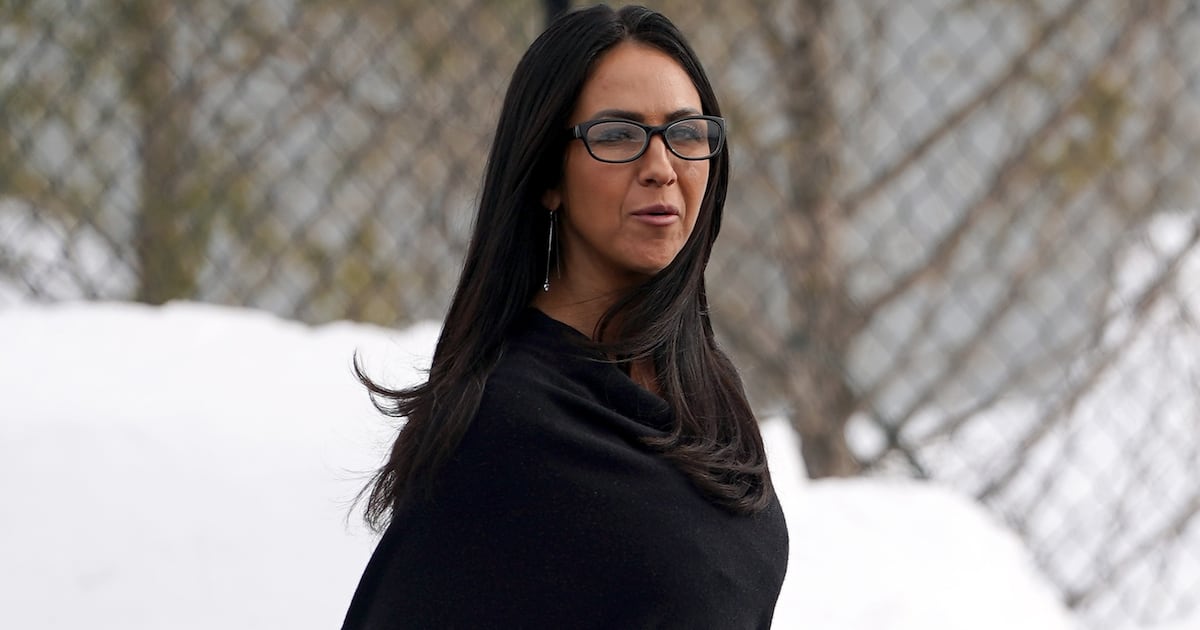After aide Rob Porter departed the White House amid accusations he had physically abused two ex-wives, President Trump tweeted a question:
“Is there no such thing any longer as Due Process?”
Well, Trump is about to get a dose of it.
On Tuesday, a Manhattan judge dismissed Trump’s effort to deny due process for Summer Zervos, ruling she can go ahead with Case 150522/2017. That is the suit in which Zervos charges Trump defamed her by calling her a liar. She was one of more than a dozen women who accused him of groping and or kissing them.
Trump had sought through his lawyer, Marc Kasowitz, to block the suit, arguing in December that a sitting president cannot be sued in state court. Kasowitz further argued that Trump was too busy leading the free world, and that Trump’s remarks were “political speech” covered by the First Amendment.
In an uncommonly clear 18-page ruling three months in careful making, Judge Jennifer Schechter rejected all that. She offered a simple principle that is a pillar of America’s true greatness.
“No one is above the law,” Schechter wrote.
She cited Clinton v. Jones, the Supreme Court decision allowing Paula Jones to proceed with a federal sexual harassment lawsuit against then-President Bill Clinton.
“The President of the United States has no immunity and is ‘subject to the laws’ for purely private acts,” Schechter wrote in summarizing the Supreme Court ruling.
She concluded, “In the end, there is absolutely no authority for dismissing or staying civil action related purely to unofficial conduct because defendant is President of the United States.”
The case will go ahead, and Trump may find himself being deposed under oath about Zervos’ allegations of sexual assault. That puts the Zervos case in a whole other league than the Stormy Daniels scandal, which involves only consensual sex with a woman who took money not to talk and now wants to talk.
And Zervos cannot be bought off. She is only seeking $2,914 in damages, so she is not after a monetary settlement. She wants either an admission or a jury verdict.
In her ruling on Zervos v. Trump, Schechter found further legal grounds for Zervos’ particular suit by citing a New York State Court of Appeals case which held that a college basketball coach was liable for branding two players money-hungry liars for accusing one of his staff of molesting them.
“In Davis v Boeheim, the Court of Appeals determined that a defamation action could be maintained against a defendant who called individuals claiming to have been victims of sexual abuse liars and stated that he believed that they were motivated by money to go public,” Schechter wrote.
In that case, the plaintiffs did not have to prove they had been molested to establish that they had been defamed. They needed only to show they had not come forward simply seeking personal gain as the coach alleged.
Schechter cites in her decision Trump’s repeated accusations that Zervos and the other women had come forward either seeking fame or at the instigation of the Hillary Clinton campaign.
As the decision notes, Trump tweeted that the allegations were “totally made up nonsense to steal the election.”
The decision further quotes Trump at an October, 2016 rally in Pennsylvania:
"Every woman lied when they came forward to hurt my campaign, total fabrication. The events never happened. Never. All these liars will be sued after the election is over.”
Trump is now the one being sued and the judge notes that Zervos need not prove that he groped her in the hotel room. She need only show that her version was not completely fabricated and that he has no basis for saying she harbored ulterior motives in making the accusations.
“Defendant—the only person other than plaintiff who knows what happened between the two of them—repeatedly accused plaintiff of dishonesty not just in his opinion but as a matter of fact,” the judge notes. “He not only averred that plaintiff told ‘phony stories’ and issued statements that were ‘totally false’ and ‘fiction,’ he insisted that the events ‘never happened’ and that the allegations were ‘100% false [and] made up.’”
One witness or bit of evidence establishing that Zervos was in that hotel room — for instance a receipt that would confirm the claim in her suit that he ordered one very expensive club sandwich for the two of them — and Trump likely loses, no matter what happened there.
Schechter rejects any argument that Trump was just engaging in “political speech” that is protected by the Constitution.
“That defendant's statements about plaintiff's veracity were made while he was campaigning to become President of the United States, does not make them any less actionable,” the decision says.
She said, he lied.






